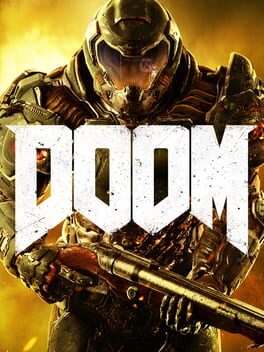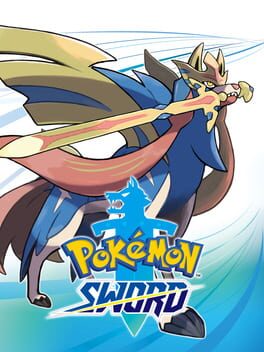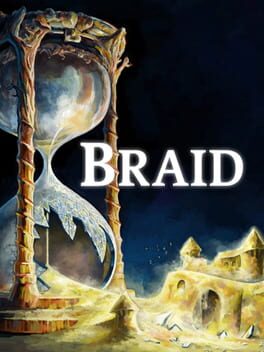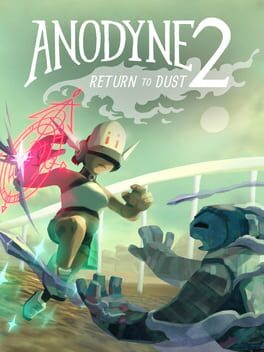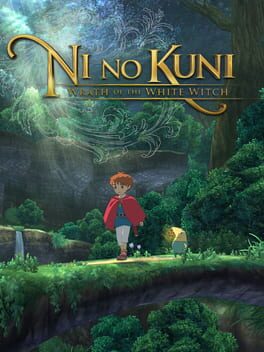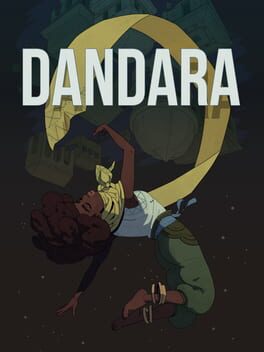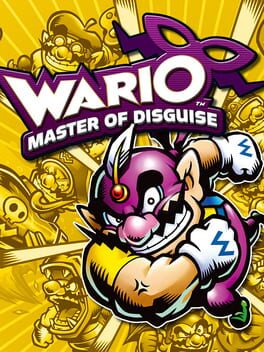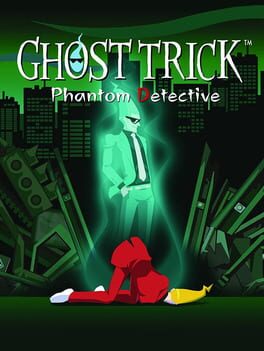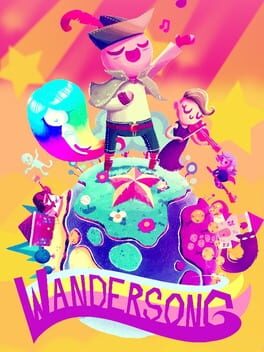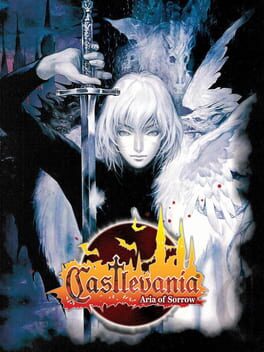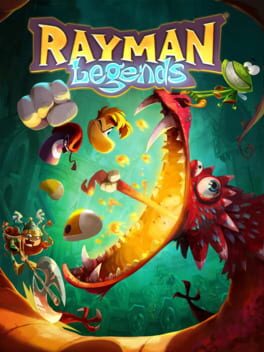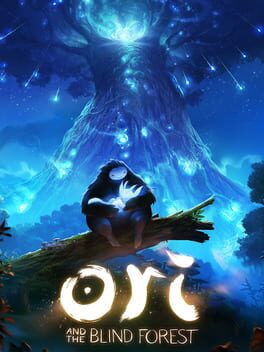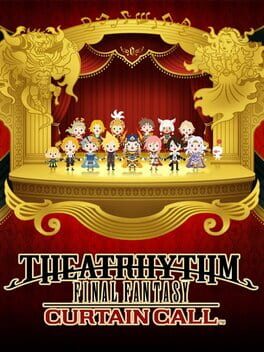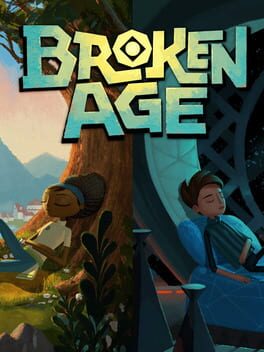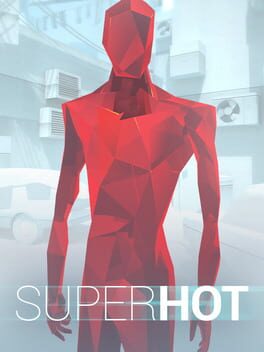chump
2016
It's really impressive how well this game manages to accomplish its only goal: raw, blood-pumping aggression. The glory kills, which are used to give the player mini-rewards for good play, are a particularly genius mechanic. It's really underestimated how valuable a few seconds of being able to catch your breath and think about your next move are while playing as a glass cannon character in a high-speed action game, and the intensely gratifying animations certainly don't hurt. My gripes with this game come from the parts that feel as though they were implemented to bring the game up to speed with modern gaming standards, mainly the upgrade system and the map used for exploration. I understand the idea was to throw in some non-action elements in order to keep the game from becoming too repetitive, but c'mon, it's DOOM- no part of it should require a menu.
2019
The worst mainline Pokemon yet. It's clear that Game Freak had tunnel vision in terms of criticism towards Sun and Moon's copious amount of cutscenes because Sword and Shield has no story. It's really as simple as that- Gen 8 consists entirely of walking into a town, entering the gym, fighting the gym leader, and leaving. There's nothing in Sword and Shield that can't be found in any other game in the series, and therefore no reason to play it. It doesn't even have every Pokemon, which seems like such a joke- what point is there to a new Pokemon game if you can't even catch 'em all?
2008
I'll come right out and say that I think Braid is a great game. It introduces all of its mechanical building blocks right out of the gate, it teaches you all the quirks of each world's unique gimmick about as naturally as possible, and it makes you assemble all the knowledge you've gained by yourself in order to solve each puzzle, which parallels assembling the in-game jigsaw pieces yourself even after you've collected them. It doesn't push any of its mechanics as far as it could have, but it covers a really respectable amount of breadth for each one despite its very short runtime. I found myself fulfilled by every single puzzle solution and excited to find out what each world's new mechanic would be, which I truly don't think I can say about any other puzzle game.
Braid also has a story. But we shouldn't talk about that, since everyone agrees with me in that story in video games doesn't really matter, right? Just making sure, nobody actually took Braid's story seriously, right? Guys?
Braid also has a story. But we shouldn't talk about that, since everyone agrees with me in that story in video games doesn't really matter, right? Just making sure, nobody actually took Braid's story seriously, right? Guys?
Brilliant conceptually, but unfortunately it falls a little short gameplay wise. It's absolutely genius to have an open-ended 3D hub world for linear 2D levels, but these 3D areas end up feeling pretty boring due to how non-interactive they are- it'd go a long way if the spark ability had any uses outside of just entering levels. The 2D levels aren't perfect either. They start off really strong with some great, textbook examples of introducing and expanding on new mechanics in a short timespan, but they quickly start over-relying on Very Special sections that completely veer off from the established gameplay. Of course, it's a comedy game, so sections like these are expected, even welcome, but frankly there's not enough of the "normal" game to justify how many "weird" sections there are. Non-sequiturs that deviate harshly from the norm are only meaningful when it doesn't feel like most of the game is non-sequiturs- I think I played two levels in a row where all I had to do to win was talk to several NPCs.
It's a game that has a lot to say story wise, and the story is generally well integrated with the gameplay, aside from when it matters the most. There's one sequence about halfway through that sticks out in this regard- it's a crucial and genuinely pretty powerful story beat that gets told almost entirely through a really length sequence of text boxes. In this way the story's pretty representative of the game as a whole: a fantastic vision that wasn't able to end up becoming a fantastic final product.
It's a game that has a lot to say story wise, and the story is generally well integrated with the gameplay, aside from when it matters the most. There's one sequence about halfway through that sticks out in this regard- it's a crucial and genuinely pretty powerful story beat that gets told almost entirely through a really length sequence of text boxes. In this way the story's pretty representative of the game as a whole: a fantastic vision that wasn't able to end up becoming a fantastic final product.
It's a pretty mediocre game with some pretty great ideas. Elements like being able to use spells in the overworld, taking and giving heart, and switching between the two worlds seem like they'd make for interesting puzzle elements but aren't utilized whatsoever. The "Pokemon in an action RPG" concept is likewise pretty compelling, but I never found myself strategizing much with them or even using them in battles over Oliver, who always has at least one spell that each boss is weak to. Plus the game's version of Pokemon's evolution is essentially just a color swap, which completely misses why evolution is effective in the first place.
The story is pretty JRPG standard, but the exceptional visuals and music do a good job at making the player feel a certain sense of child-like wonder, which was clearly one of the game's goals. However, the effect is limited when you look past the graphics and realize that the world and characters are pretty boring. About halfway through the game you visit a very remarkable location through a hilarious sequence of events. I was hoping that the game would transition into being one of those RPGs where you come across quirky area after quirky area, but that one location is unfortunately the only one I'd call memorable. Aside from Drippy, who is an excellent character, mun, the cast doesn't really have much going on either.
The story is pretty JRPG standard, but the exceptional visuals and music do a good job at making the player feel a certain sense of child-like wonder, which was clearly one of the game's goals. However, the effect is limited when you look past the graphics and realize that the world and characters are pretty boring. About halfway through the game you visit a very remarkable location through a hilarious sequence of events. I was hoping that the game would transition into being one of those RPGs where you come across quirky area after quirky area, but that one location is unfortunately the only one I'd call memorable. Aside from Drippy, who is an excellent character, mun, the cast doesn't really have much going on either.
2018
I can't express how refreshing it is to play a game that completely embraces weirdness for the sake of weirdness. Dandara's core mechanics are unorthodox so it's satisfying when it delivers on being an unorthodox non-linear platformer: deceptively simple gameplay that puts a strong emphasis on quick maneuvering and spur of the moment improvised decision-making leads to an arcade-y experience that's more Mega Man X than Super Metroid. Combine this with a story that's absolutely dead set on never giving you any straightforward answers whatsoever and you've got a stand-out example of a game that manages to fully differentiate itself from a genre that's becoming intimidatingly homogenized. However, that's also where Dandara's biggest shortcoming ends up being. For a game with this many out-of-the-box design choices, it's really disappointing when figuring out where to go next follows the standard procedure of simply looking at the map for exits you haven't gone through yet. The game also probably could've benefited from taking itself a little less seriously- even I got pretty fed up with it constantly sniffing its own farts.
Found myself enjoying this a lot less than I hoped I would. Like Shu Takumi's other games, it makes great use of reincorporation and has a really satisfying ending. That being said, I didn't really find the mystery as interesting as the ones in the Ace Attorney games, probably due to how much less grounded the world is. I was also disappointed by the puzzles, which are great conceptually, but I didn't feel satisfied by the solutions to pretty much any of them. The game is worth playing alone though for the fantastic character animations- it has some of the most expressive 3D models I've ever seen, which is unfathomably impressive considering the fact that it's on the DS.
2018
The best way to describe Wandersong's gameplay is that it's like an RPG without battles. The obstacles that the player has to overcome mostly consist of figuring out how to progress, usually by talking to townspeople in order to trigger some sequence of events. Does this mean there's nothing to the gameplay? Pretty much. This isn't a dealbreaker, as there are some dialogue-focused games that I do enjoy, but Wandersong is not one of them. The reason for this is because the dialogue is not good. There's been a recent epidemic of certain indie games all having the same brand of terrible writing- every character speaks like a teenager on the Internet. You know exactly what I'm talking about- lowercase letters, being overly "wholesome," usage of quirky language like "heck." It's all lazy, and it's all in an effort to create artificial charm and likeability that isn't really there. It's bearable in something like A Short Hike because of the gameplay around it, but when there's nothing to distract from it, like in Wandersong, it just gets really, really grating. Couple it with a boring meta-focused plot that wasn't clever the first dozen times it was done and it's almost painful.
Let's focus on the positives now- after all, that's what the game's main character would want. Although the puzzles are extremely easy, the way they're all integrated in with the singing mechanic in different ways is pretty well done. Likewise, certain wacky turns of events, like suddenly being in a non-linear platformer, or being trapped in a Majora's Mask-esque scenario, or sailing through the world map with a band of pirates, are pretty appealing and give you a reason to keep playing in spite of the dialogue. All in all, it should've fully been a rhythm game with some puzzle elements instead of just having occasional rhythm segments that are oddly impossible to fail.
Let's focus on the positives now- after all, that's what the game's main character would want. Although the puzzles are extremely easy, the way they're all integrated in with the singing mechanic in different ways is pretty well done. Likewise, certain wacky turns of events, like suddenly being in a non-linear platformer, or being trapped in a Majora's Mask-esque scenario, or sailing through the world map with a band of pirates, are pretty appealing and give you a reason to keep playing in spite of the dialogue. All in all, it should've fully been a rhythm game with some puzzle elements instead of just having occasional rhythm segments that are oddly impossible to fail.
One of the best non-linear platformers out there simply because of how streamlined everything about it is. Zero tutorials, unceremonious upgrades, and a story and setting that the player is hardly told anything about all make the game much more atmospheric and memorable compared to chattier entries into the genre. But, the memorability in particular is largely stifled by some barely fleshed out RPG mechanics and overall uncomplex gameplay- I only ever found myself switching away from my default strategy two or three times.
2013
Outstanding visuals, audio, and movement mechanics all come together to make backtracking fun, which is about the highest praise you can give to a non-linear platformer. Combat is non-interactive and feels more like an inconvenience than anything, and the story gets pretty intrusive- the world could've been used to speak for itself but the game instead relies on interruptions and cutscenes. Still a pretty magical experience.
Exactly what it says on the tin, which comes with its fair share of missed opportunities. Particularly in the lack of impact for actually doing well on tracks and its underutilized puppet show style, which my ideal version of this game would combine. Picture it: getting satisfactory grades on "Bombing Mission" through "The Chase" unlocks a Rhythm Heaven-style medley of those tracks, fully rearranged and accompanied by a puppet reenactment of Avalanche's misadventures through Midgar. Maybe doing poorly on certain sections of one of these medleys would also humorously alter the events of its respective game, but then again it's not fair to expect any old rhythm game to match Elite Beat Agent's genius.
On the other hand, it's hard to be disappointed that we "only" get the original tracks, considering their sheer volume and the amount of care put into both mapping the beats and constructing unique backgrounds for every single one. Not even I can be cynical about the bigger-is-better mentality present here, or even the DLC, not as long as I get to tap along to "Wind Scene." I think the day Nintendo makes their own version of this with all of their IPs is the day my manchild heart finally gives out.
On the other hand, it's hard to be disappointed that we "only" get the original tracks, considering their sheer volume and the amount of care put into both mapping the beats and constructing unique backgrounds for every single one. Not even I can be cynical about the bigger-is-better mentality present here, or even the DLC, not as long as I get to tap along to "Wind Scene." I think the day Nintendo makes their own version of this with all of their IPs is the day my manchild heart finally gives out.
2014
Probably would be one of my favorite point-and-clicks if it was a complete story, but it feels like it ends right when it's about to get interesting. The puzzles strike a solid balance between difficulty and rationality, the cast includes Jack Black so is automatically great, and all 2.5 of the locations are imaginative and visually appealing.
2016
A phenomenal concept that never winds up going anywhere, and a story that isn't as deep, interesting, or original as it thinks it is. Probably would've bumped it up half a star if there was more to the replay system- being able to watch them from a third person or top down perspective would've gone a long way.
